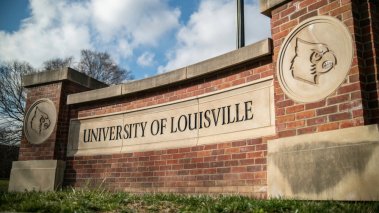Table of Contents
Kentucky professor reprimanded for criticizing university’s handling of music award

University of College / Shutterstock.com
Disagreeing with your university should not prompt administrative reprisal. That’s what FIRE told the University of Louisville earlier this month after it punished music professor Krzysztof Wolek for criticizing the university’s handling of a music award. UL’s stonewalling of FIRE’s objections to the punishment further raises free expression and academic freedom concerns on the Kentucky campus.
During spring semester, UL investigated Wolek and issued him a verbal warning for criticizing administration officials’ approach to judging the Grawemeyer Music Award, a prestigious annual music award that pays tribute to “the power of creative ideas, emphasizing the impact a single idea can have on the world.”
Prior to the award judging, the dean of UL’s school of music, Teresa Reed, requested that faculty “kindly refrain” from discussing the award’s structure, rules, and procedures. Despite this directive, Wolek sent an email to a music department colleague in which he criticized the judging of the award and expressed his concern that the university was using the “politics of divide and conquer” to create division rather than unity among colleagues.
In April, Reed told Wolek he was under investigation for violating UL’s Faculty Accountability Policy and faced two charges: engaging in “[u]nprofessional, disrespectful, hostile, harassing, intimidating, or discriminating conduct,” and “[c]onduct that severely disrupts the work environment.” In May, UL concluded the investigation and issued Wolek a verbal warning.
FIRE will continue to call on UL to rescind the verbal warning and reverse the signal it has sent faculty that dissenting from the university’s administration will mean getting slapped with warnings about repercussions for protected expression in the future.
But as we told the university in an Aug. 10 letter, reprimanding Wolek for his protected speech presents two constitutional concerns.
First, UL’s “request” that faculty refrain from discussing the music award was not a mere suggestion — as evidenced by Wolek’s punishment — but a prior restraint on faculty expression. Prior restraints prohibit speech before it can occur. Due to their speech-chilling nature, the Supreme Court has stated they are “the least tolerable infringement on First Amendment rights, and come with a “heavy presumption” against constitutional validity. Traditionally, prior restraints are upheld only in extreme circumstances, such as when there is a demonstrated threat to national security.
As FIRE told UL:
[T]he disciplinary actions against Wolek confirm that your email was intended not as a suggestion or a way to ensure appropriate handling of workplace disruptions, but rather to put faculty members on notice of a prohibition on any speech related to the Grawemeyer Music Award. By attempting to prevent faculty members from voicing opinions about the Grawemeyer Music Award, U of L failed to uphold its constitutional obligations—specifically, here, imposing without sufficient justification a prior restraint against faculty members discussing their workplace and the overall functioning of the university at which they work.
Second, contrary to UL’s claims, sending a single email critical of the university’s administrative functions does not violate the university’s policies. First, there is no evidence Wolek’s email caused any workplace disruption. Nor is it uncivil or unprofessional to raise concerns about campus issues to the administration – and even if Wolek’s language was uncivil, it would likely remain protected as punishing speech for being “uncivil” often results from overbroad and unconstitutional enforcement of policies. Furthermore, Wolek’s email does not approach the Supreme Court’s standard for harassment, which must include extreme, repetitive, and objectively offensive behavior.
To violate their First Amendment obligations, public universities need only take action against faculty that would “chill or silence a person of ordinary firmness from future First Amendment activities.” Accordingly, a “mere” verbal warning would satisfy this test.
Despite FIRE including a signed privacy waiver authorizing UL to discuss this case, UL has yet to respond substantively to FIRE’s letter, citing employee-privacy concerns. FIRE will continue to call on UL to rescind the verbal warning and reverse the signal it has sent faculty that dissenting from the university’s administration will mean getting slapped with warnings about repercussions for protected expression in the future.
Recent Articles
FIRE’s award-winning Newsdesk covers the free speech news you need to stay informed.

Texas tramples First Amendment rights with police crackdown of pro-Palestinian protests

Here’s what students need to know about protesting on campus right now

Kansas takes a stand for intellectual freedom



